Easy to Fly Beginner Drone With Good Camera
The best beginner drones 2022: top camera drones for new fliers
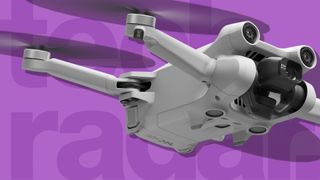
Editor's note
Most of the drones in this list are mainly designed for outdoor flying, but the rumors are growing that DJI is preparing to launch an indoor-friendly model called the DJI Avata. There's no official news on this drone yet, but the leaks so far suggest it could be a smaller and more affordable version of the DJI FPV (see no.5 in this guide).
Like so-called 'cinewhoop' drones, the rumored DJI Avata appears to have built-in propellor guards that could make it suitable for flying around in tight, confined spaces –particularly around people. It probably won't be quite as pick-up-and-play as drones like the DJI Mini 2 or Ryze Tello, as it's expected to come with an FPV headset for you to fly it with. But we're looking forward to seeing what could be an interesting new breed in DJI's beginner-friendly drone lineup.
Mark Wilson, Cameras editor
The best beginner drones are a great introduction to the world of aerial photography and videography. And helpfully in the current financial climate, they're also often more affordable than the more premium options that you'll find in our overall guide to the best drones. We've spent countless hours testing some of the simpler flying cameras you can buy in 2022 and have condensed our findings into the ranked list below.
What's the best drone to buy for a beginner? It may have now been succeeded by the pricier DJI Mini 3 Pro, but we think the DJI Mini 2 is the best beginner drone around. It's the sweet spot for those who want image quality, useful features and value, even if it lacks obstacle avoidance sensors.
If you're understandably on a tighter budget, then the best really affordable drone for beginners is the Ryze Tello. Boasting a 720p camera, it might just be the best drone for those who haven't even handled a drone before – not to mention, for younger flyers who fancy brushing up on their coding skills.
Whatever budget you're working with – and whatever type of drone you're shopping for – we've rounded up all the finest novice-friendly models below including some of the best DJI drones. These are the very best flying machines novices can buy right now, whether you're seeking something basic or feature-rich, at the entry-level or a little more advanced such as an FPV drone. We've also included our price comparison tool to help you score the best drone deal available.
Not sure where to start when selecting the right drone? Scroll down for drone buying tips and more info on areas like drone licensing laws.
The best beginner drones 2022
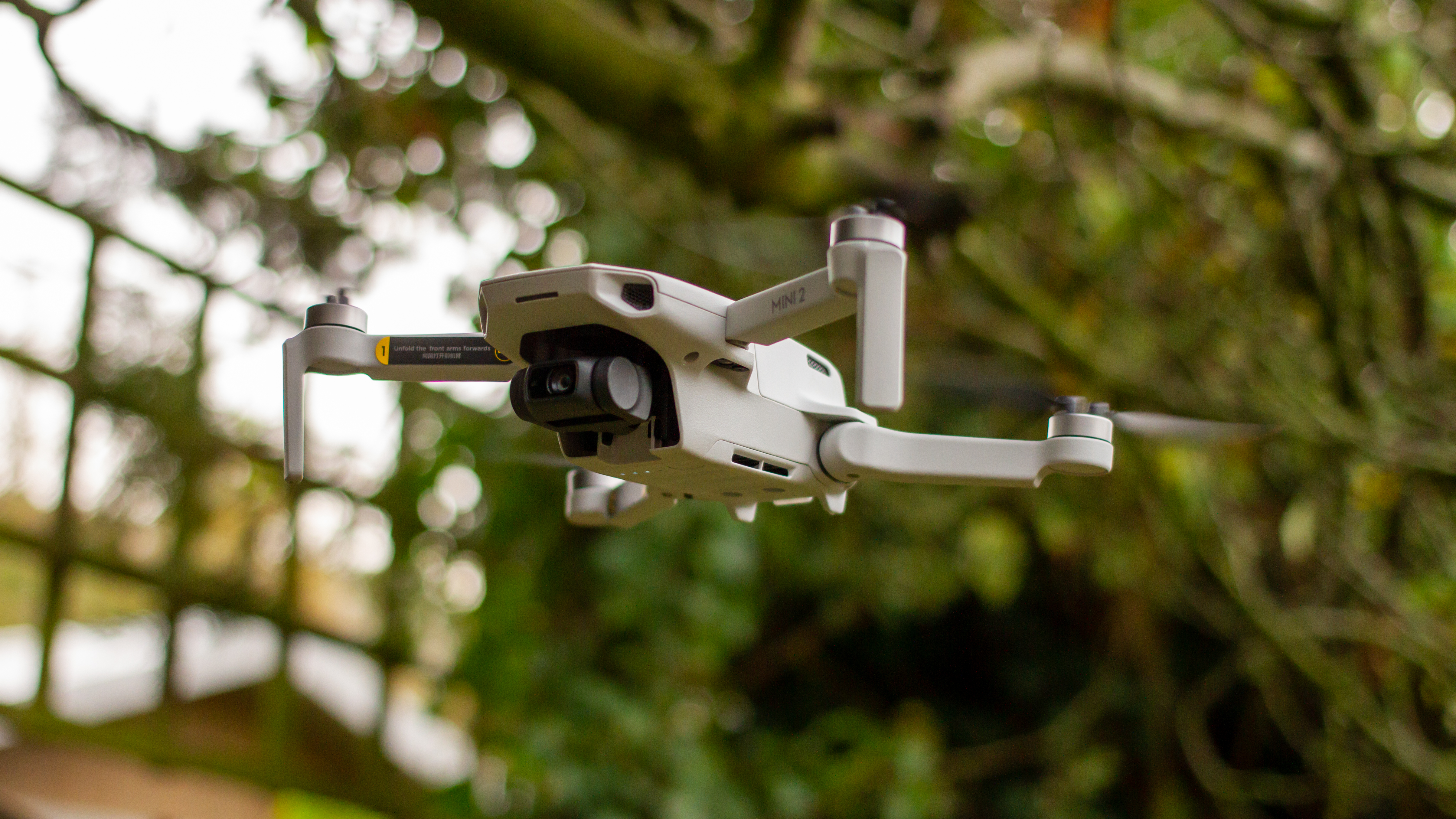
The DJI Mavic Mini was an aerial game-changer, offering strong battery life, accessible controls and fantastic footage, all in a compact folding package. Almost identical to its predecessor, the DJI Mini 2 features a handful of upgrades that make it an even better beginner drone.
Small enough to slip in a jacket pocket, we found the second-generation Mini to be even easier to fly thanks to a revamped controller. The streamlined handset has proven to be advanced yet intuitive during our tests, permitting nuanced inputs without overwhelming the pilot. It's truly a joy to operate and, with a maximum range of 10km, improves the entire flying experience. The hardware itself might be familiar, but improved motors, stabilization and wind-resistance deliver rock-steady footage in all but the breeziest conditions, while battery life remains solid with a flight time of around 30 minutes.
And though the sensor resolution is the same as before, the Mini 2 can capture buttery smooth footage in sharp 4K at 30fps. Scenes are a little underexposed for easier editing, but clarity is undeniably impressive. It's not a total overhaul and there's still no obstacle avoidance, but the DJI Mini 2 is nevertheless the best starter drone beginners can buy.
Read our in-depth DJI Mini 2 review
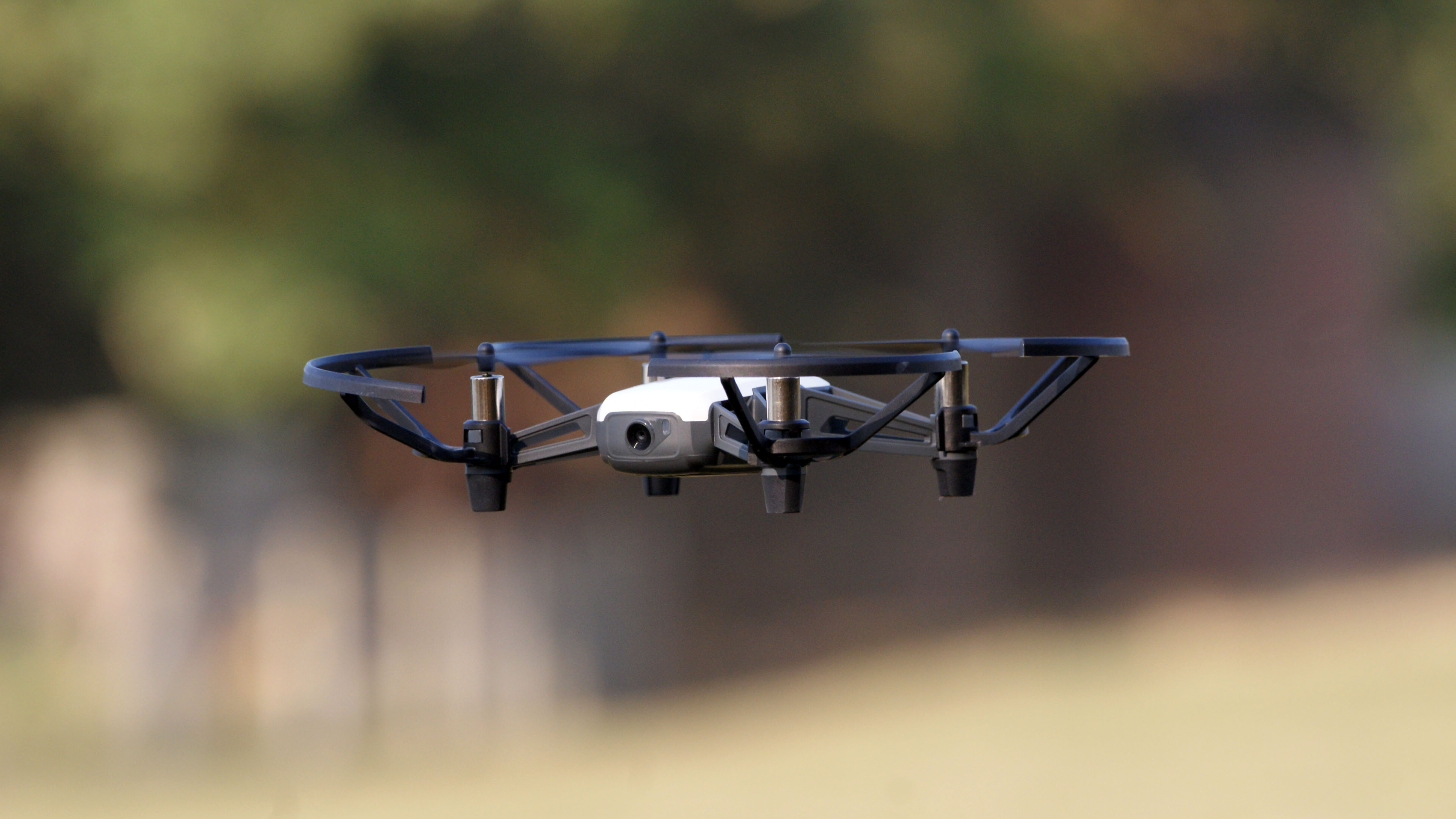
Designed in partnership with DJI, Ryze's Tello is an affordable, compact and lightweight drone that's ideal for mastering the basics. It's controllable via your smartphone running the Tello app and Wi-Fi, but you can also use a Bluetooth gaming controller, albeit at a shorter range. We appreciate that it's proven to be a responsive and lively flier during our tests. That makes it an effective teacher so you can master the ups and downs of twin-stick quadcopter flying. It even features stability sensors to minimize drifting when it's supposed to be static, and the 13-minute battery life isn't bad at all.
It's not all positive. The flight range is limited (well below the 100m maximum Ryze suggests, think 30m instead) while the slightest breeze will send the drone drifting off in whatever direction it's blowing. The 720p video camera isn't up to much either, and with no local storage it sends all footage and photos directly to your phone – which results in choppy video if and when the Wi-Fi connection dips in and out.
Those caveats aside, the Tello is a great starter drone that does the simple things well and feels better made than other budget models. It's the obvious pick for the best budget beginner drone category.
Read our in-depth Ryze Tello review
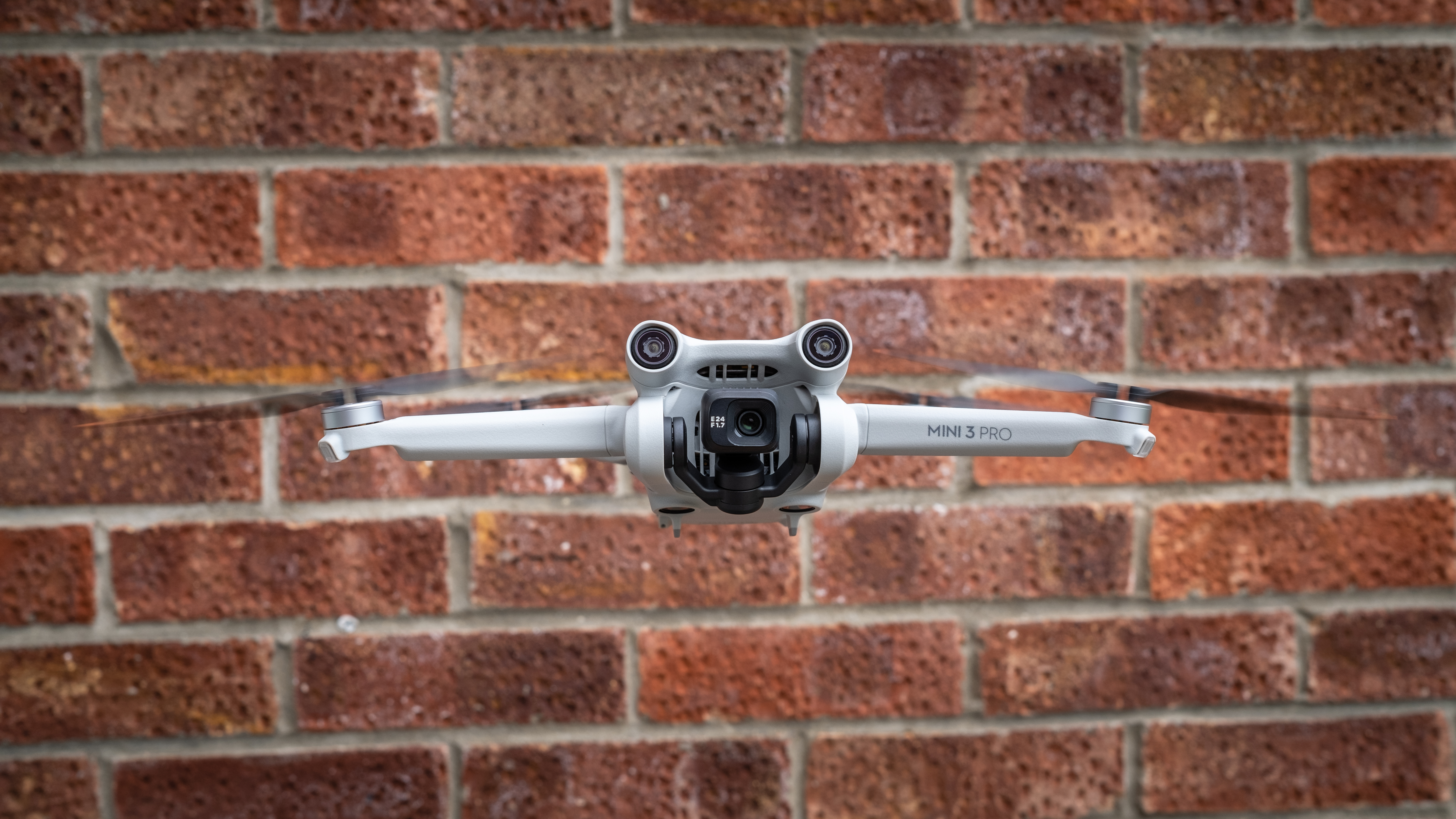
It's by far the most expensive model in this list, but the Mini 3 Pro is also the best drone around for beginners with large budgets. It's big step up from the DJI Mini 2 in almost every way, but the most useful feature for novice fliers are its tri-directional obstacle avoidance sensors. These not only give you a safety net when flying around tree branches, they also help unlock lots of automated modes like FocusTrack, which we found particularly useful during our testing.
The other big upgrade from the Mini 2 is the Mini 3 Pro's camera. During our daylight tests, the drone's 12.1MP 1/1.3-inch sensor produced excellent image quality, with very little noise up to its maximum ISO 6400 setting. The bright f/1.7 lens and dual native ISO tech means low-light performance is strong for such a small drone, if not quite as good as larger models like the DJI Air 2S.
With other benefits like the ability to shoot in portrait (without cropping) and the new optional DJI RC controller, which is a super-convenient way to fly the drone, the Mini 3 Pro is a fine choice for beginners – if you can stretch to its price tag.
Read our in-depth DJI Mini 3 Pro review
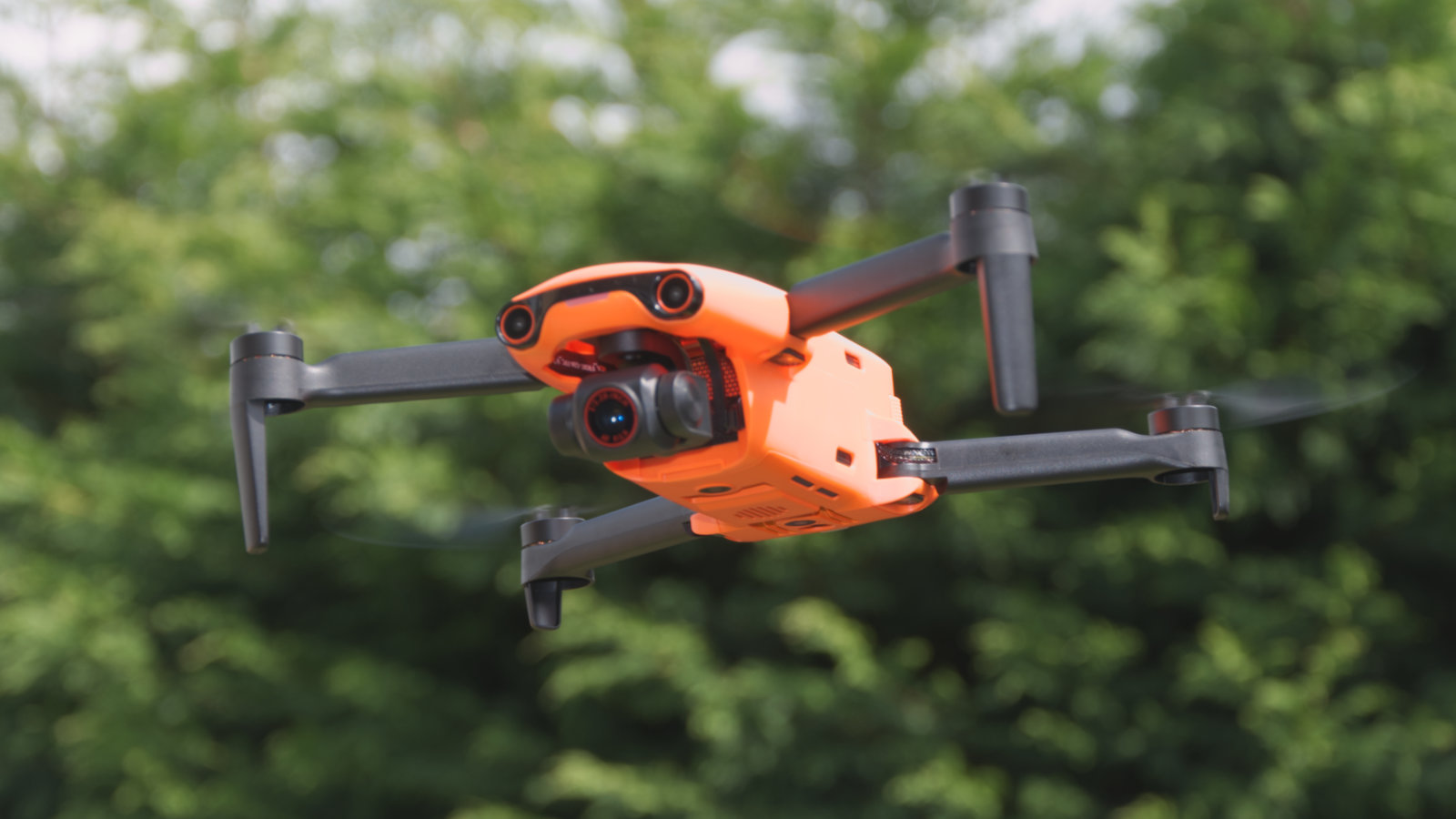
The Autel Evo Nano+ is taking on DJI's Mini 3 Pro in the sub-250g drone category. That, in of itself, is no easy undertaking with the latter being so near darn perfect.
To its credit, the Evo Nano+ is an impressive beginner drone in its own right. During our tests, we've found that it surpasses our current top pick, the DJI Mini 2, when it comes to low-light performance, thanks to its sensor, and is just about on par when dealing with windy conditions. That makes it an easy recommendation for us, especially when you love capturing sunsets and nighttime cityscapes – not to mention if you need a high-performance drone that meets Europe's critical weight limits.
Admittedly, the Mini 3 Pro has the overall edge here. However, the Evo Nano+ should see refinements over time, thanks to Autel's adding new features and making improvements via firmware updates. And, if you're looking for an ace alternative to DJI's offerings, this one should be at the top of your list.
Read our in-depth Autel Evo Nano+ review
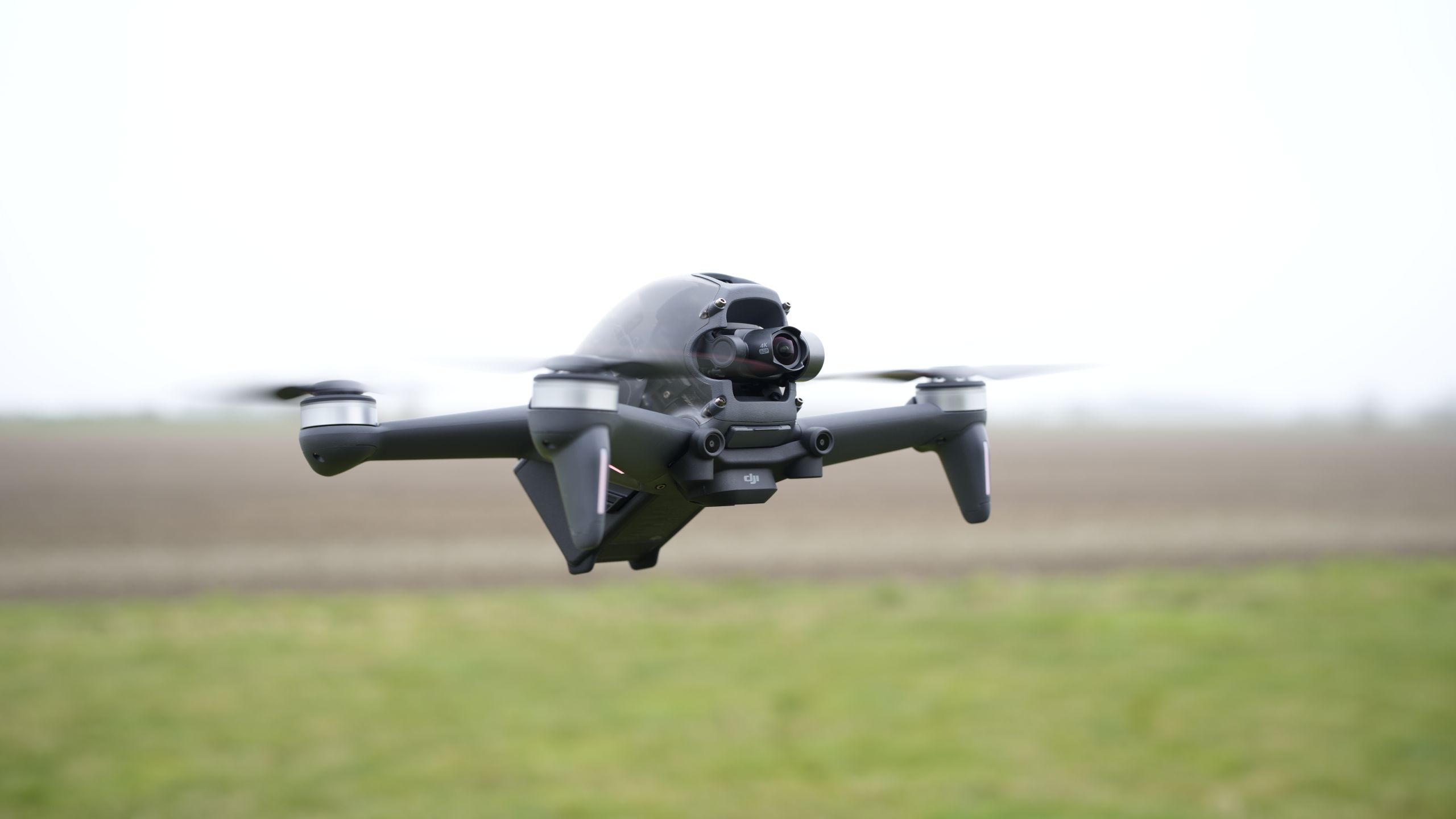
We know that "beginner FPV drone" sounds like an oxymoron, but the DJI FPV proves otherwise. First-person view drones, newcomers in the drone world, typically take a lot of practice to master, with them needing a lot of fine-tuning and being completely manual. However, this offering from DJI makes FPV flying a lot more accessible to beginners thanks to its built-in GPS and collision sensors.
During our tests, these features minimize the one big thing FPV drones are notorious for: crashes. Improving your experience is the excellent digital feed and connection between the drone and the terrific DJI Goggles. Another massive reason why this is THE FPV drone for beginners is that unlike others that you have to build yourself, this one is ready to fly out of the box.
Factor in its excellent video footage and image quality, and it's hard for us to recommend anything else to those looking for the best beginner FPV drone.
Read our in-depth DJI FPV review
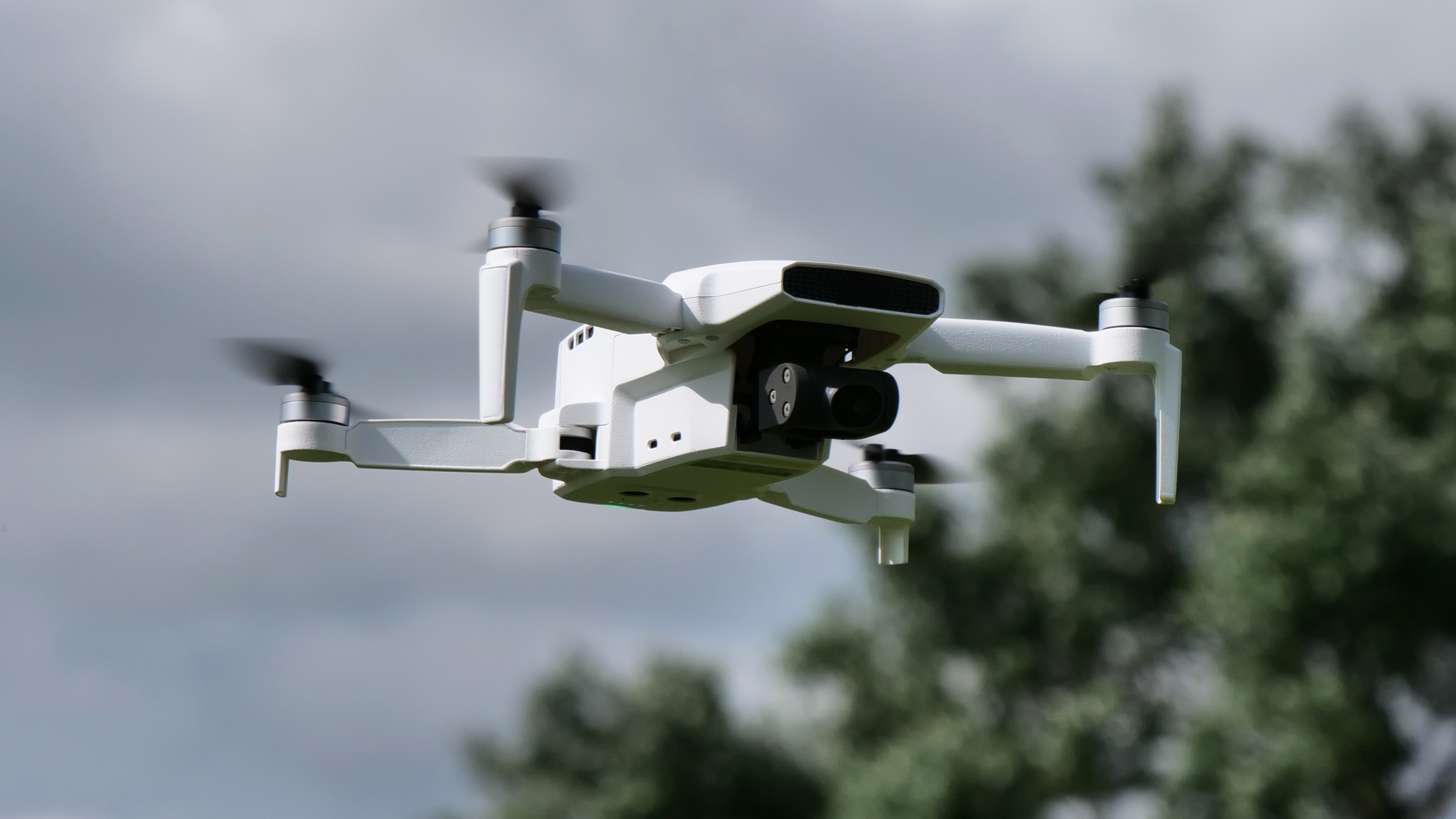
Drones of any size will always be measured up against the best that DJI has to offer. But if the DJI Mini 2 didn't exist, Fimi's X8 Mini could be the perfect entry-level 4K drone. It's slightly cheaper than the Mini 2, yet offers many of the features that make its flying rival a winner. Light enough to fall within the sub-250g category, the folding quadcopter is properly portable (as is the well-designed remote, thanks to thumbsticks that unscrew and tuck into the base).
Despite its compact size, we found that the Fimi flew well in normal conditions and could also survive blustery weather. At 30 minutes, the battery life was solid, while 4K footage captured at 30fps by the 12MP Sony CMOS sensor was sharp and stable – in large part thanks to the 3-axis mechanical gimbal which kept things steady. We found the companion app to be simple and effective, too.
So why doesn't it topple the DJI Mini 2? While the all-round package is compelling for the price, it isn't quite as polished as DJI's effort. You don't get forward-facing collision sensors, either. But if for any reason you don't want a DJI drone, the Fimi X8 Mini comes is a convincing, and more affordable, alternative.
Read our in-depth FIMI X8 Mini review
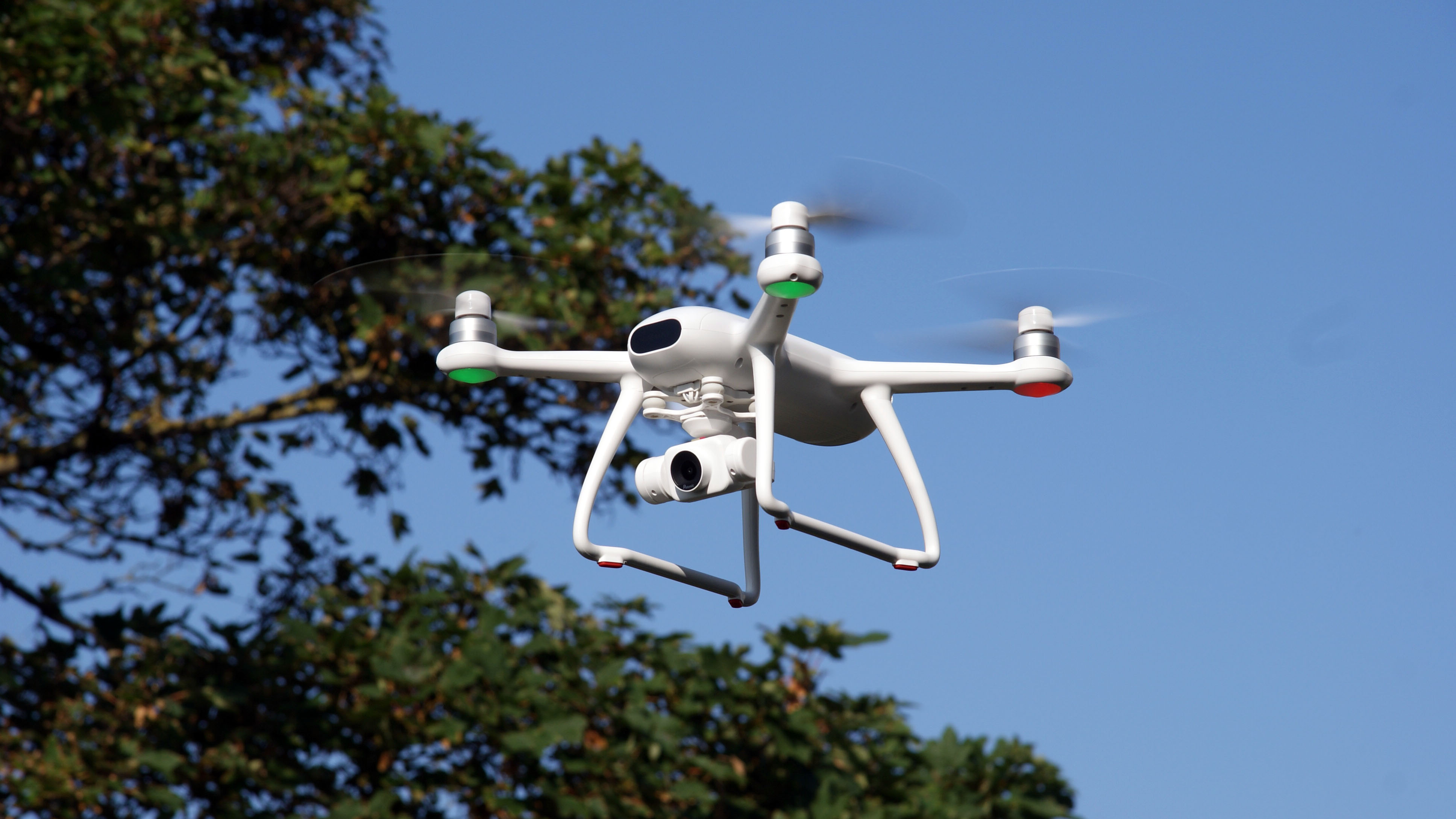
Don't be fooled by the name: the Dreamer 4K doesn't record 4K video. Its still photos might be at 4K resolution (3840 x 2160, or 8MP), but videos are restricted to 2688 x 1512, or 2.7K. It's a cheeky little trick, but then there's a lot to this drone that isn't quite as it first seems.
With its excellent build quality, high-capacity battery, GPS and sturdy, phone-gripping twin-stick controller, the well-packaged Dreamer 4K looks and feels like a 'serious' drone – something akin to the DJI Phantom range, perhaps. In reality, it's just a toy-class drone wearing fancier threads, with performance sadly not quite meeting the expectations set by its outward appearance. In our tests, the gimbal-less camera was shaky and unstable, while the impressive controller only worked to a range of around 50m before the video feed to our phone became choppy.
Battery life runs to well over 25 minutes per charge, however, and the drone does fly smoothly and responsively over its Wi-Fi connection, so this isn't a complete deal-breaker. The Dreamer just isn't quite the drone its looks and build quality suggest.
Read our in-depth Potensic Dreamer 4K review
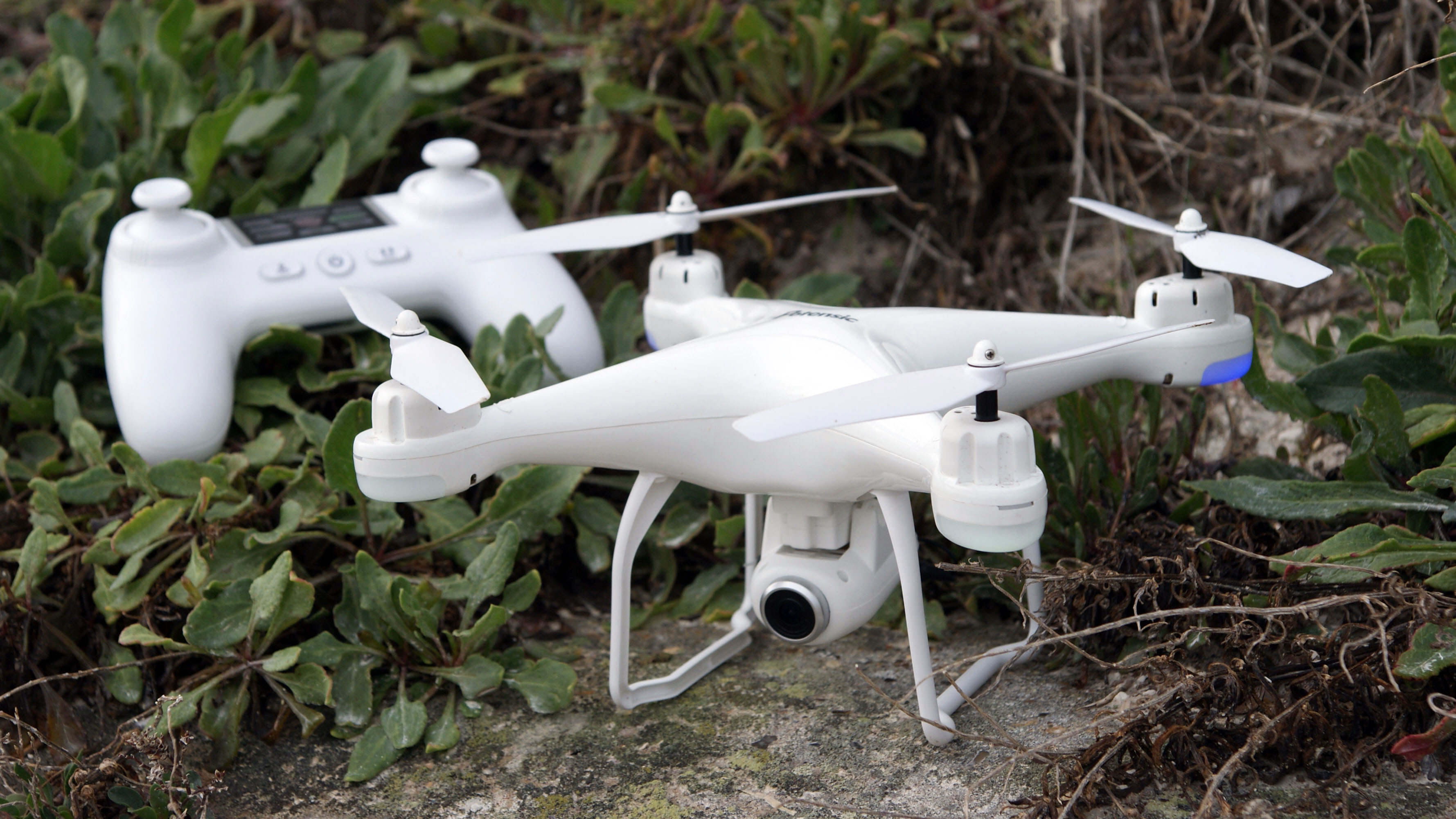
One of the more advanced beginner drones at this price, the Potensic T25 comes with one feature that sets it apart from its toy contemporaries: GPS. This gives it a return-to-home feature (tap a button on the controller and it'll come back to where it launched from) and will help you locate it should you crash it out of sight somewhere. It also comes with a hard carry case included.
Elsewhere, things aren't quite as impressive. In our time with the drone, the battery lasted just eight minutes (thankfully two are included in the box) and the drone didn't fly stably in anything but the calmest conditions – so you'll need to make sure you attach the included prop guards. While the app is nice and simple, we also experienced issues pairing the controller and drone: it required lots of switching both items on and off to get them communicating, which is never fun.
The live view camera is also best treated as a pilot aid first and a camera second, due to its low resolution and lack of stabilization. Use it for the odd snap, we say, but don't expect it to deliver aerial footage that's as good as the best beginner drones in this list.
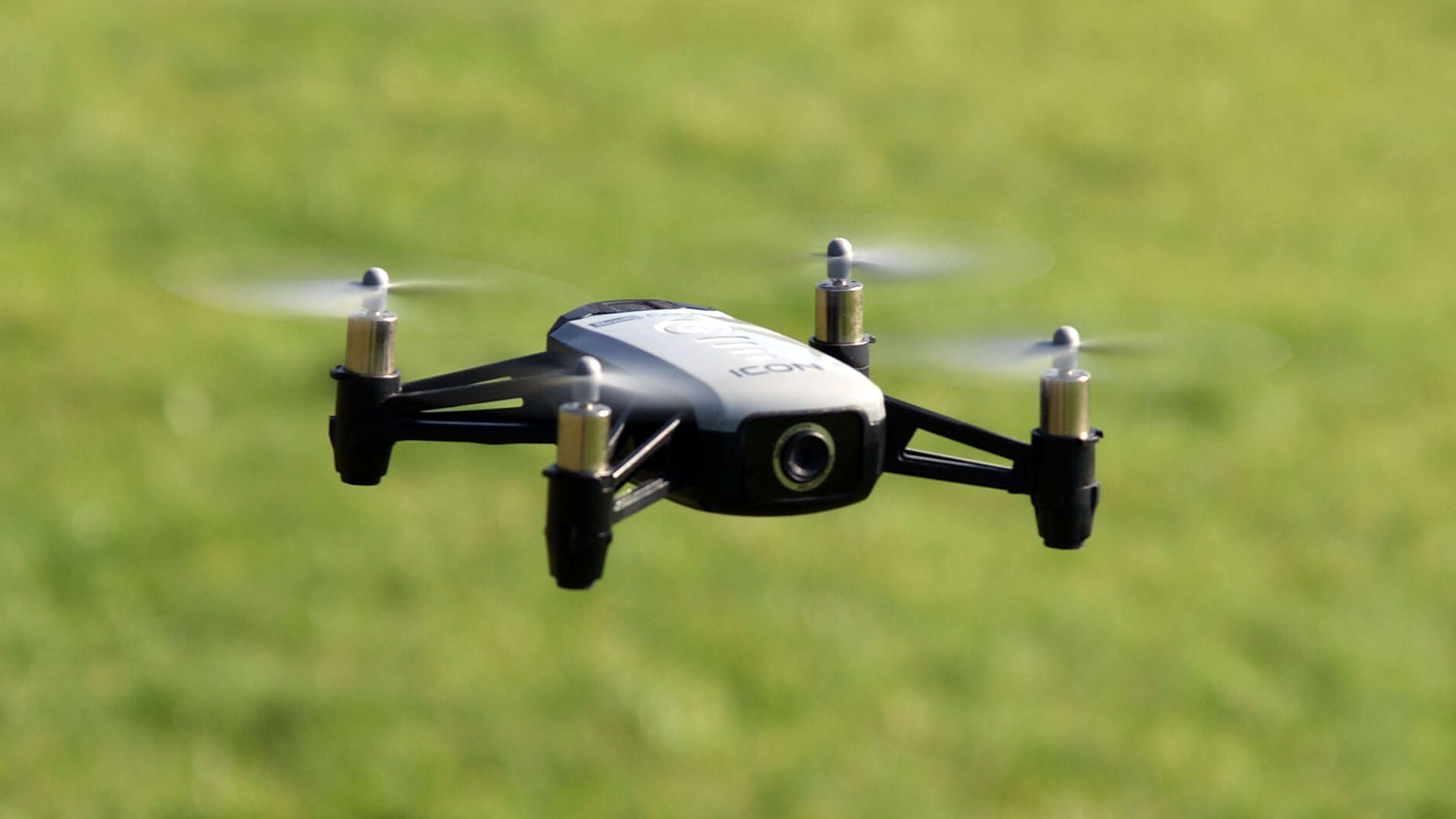
Known best for its scale models and RC vehicles, Revell has dipped its toes into the drone world with the optimistically named Icon. Priced roughly the same as the Ryze Tello, the Icon has similarly solid build quality – a cut above the cheap feel of the Simrex and Eachines models.
Its controller is particularly impressive, with pleasingly big hand grips and a rubberized finish – it's a shame it requires four AAA batteries instead of having its own rechargeable power source, though. In flight, the Icon is responsive and very quick, zipping around at a pleasing clip. You can reduce speed to 30% or 60% using the app, which is handy for indoor flying.
Indoor flying is something you're likely to be doing a lot of. Like most of the models here, it's extremely tricky to control outdoors in anything but the calmest of wind conditions. It lacks the Tello's downward-facing stability sensors too, so even indoors you can't take your hands off the controls for a moment. Camera quality and battery life are decent, but the only real reason to pick the Icon over the Tello is that it comes with a physical controller.
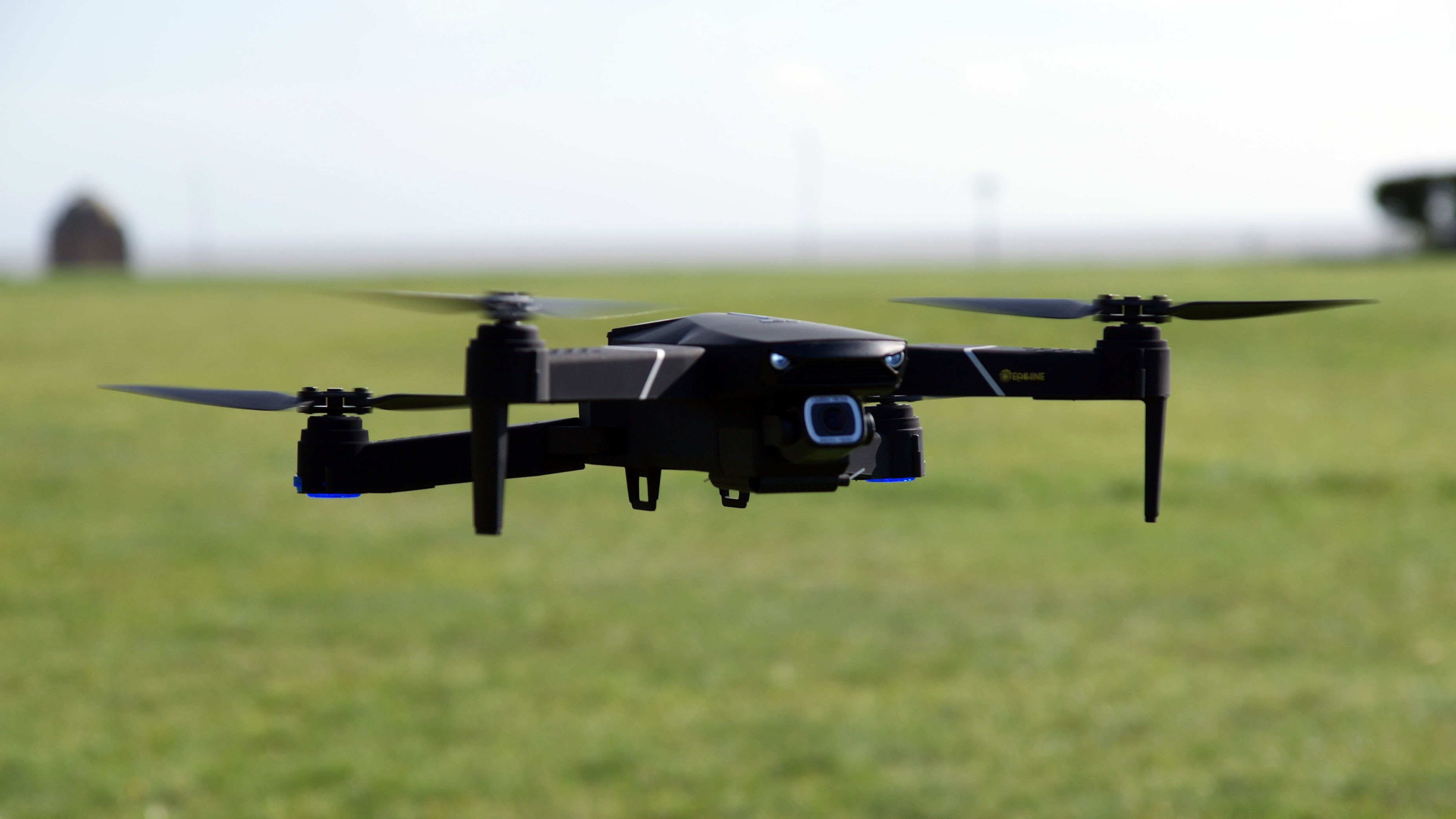
Eachine's top-of-the-range model is the spitting image of the DJI Mavic Pro, but don't get it confused with an advanced enthusiast model. This still feels quite toy-like, much more so than the Potensic Dreamer 4K (see below). The build quality has a cheap and plasticky finish, while the flight range and camera capabilities don't come close to matching even the DJI Mavic Mini. At 280g, you'll also have to register it with authorities.
That said, our tests found it to be a decent performer for its price. The 15-ish minutes of battery life felt perfectly acceptable for a larger affordable drone and its control range of 200-300m is generous. The inclusion of GPS also makes flying in trickier weather conditions a less fraught experience than with GPS-free drones: it won't simply drift off with the wind.
The camera offers '4K' resolution photos and 2K video clips. These don't benefit from any form of stabilization, so our test videos were extremely shaky, as well as being distorted due to the wide-angle lens (which means you could clearly see the front propellers in shot). But compared to the lower-resolution cameras on most of the models here, the results were more detailed and clean. A microSD also slot lets you add local storage for videos and photos.
How to pick the best beginner drone for you
Beginner drones come in a wide range of shapes and sizes, but the best ones all share a few key features. If you're just starting out, then a polished companion app will be invaluable – some of the best we've tried are from DJI, Ryze and FIMI. A drone that's happy to hover in place will also allow you to carefully learn the controls and assess how sensitive it is to control inputs.
If you're looking for a beginner drone with a camera, then bear in mind that you'll need to spend a bit more to get genuinely usable footage. Look for a camera that has at least a 1080/30p mode – lower-resolution ones like the 720p camera found on the Ryze Tello are fine for learning the basics, but you'll need to spend at least $350 / £300 / AU$550 to get a really high-quality camera.
Think about where you're most likely to fly the drone, too. If you're happy to stay indoors or in sheltered spots near your home, then a small, toy model (like the Ryze Tello or Revell Icon) will be fine. But for more ambitious flights, you'll need a drone that can both withstand gusts of wind and a few crash landings, like the DJI Mini 2 or DJI Mini 3 Pro.
A few of the drones below, like the DJI Mini 2, also feature preset flying tricks that allow you to capture Hollywood-style shots with minimal input, which can produce impressive results with just a little bit of practice.
How we test beginner drones
When it comes to beginner drones, their usability and flying importance is just as important as their cameras – so we place equal emphasis on both during our testing.
To test the former, we run through their stabilization in the air, overall responsiveness and their top speed. Most beginner drones lack obstacle avoidance powers, but if they do have them we fly them though an obstacle course to see how well they work.
After checking the drone's battery life claims based on real-world flights, we then move onto their cameras. Most beginner drones have small sensors that struggle in high-contrast situations, but we fly them through a variety of lighting conditions to see where their breaking point is and in what conditions you can realistically expect usable footage.
We then evaluate their footage, taken at a range of frame-rates, on a calibrated monitor, alongside some of the drone's sample still photos. When it comes to image quality, we look at detail, sharpness across the frame, and high ISO noise handling. We then combine these results with our overall impression of the drone's design, features and value to produce our final verdict.

Do I need a license to fly a drone?
Drone laws mean that taking to the sky is tightly regulated. This is to ensure that the skies remain safe for everyone, especially around sensitive locations such as airports and national parks. Drone laws also try to address privacy concerns when camera-equipped drones fly in residential areas.
In many regions, like the US, drones that weigh below 250g do not need to be registered with a civil aviation authority. You'll still need to follow all the local drone laws, such as keeping your drone within line of sight at all time, but registration commonly isn't required.
This isn't the case in all countries, though. In the UK, drones weighing less than 250g used to be exempt from registration requirements. This has now changed, so that owners of any drone with a camera will need to register their flying machine with the Civil Aviation Authority and get an Operator ID. You can do this for a fee of £9 per year, provided you're 18 or over.
If your drone weighs more than 250g, you'll also need a Flyer ID. To get this, you'll need to take an online test consisting of 40 multiple-choice questions. The answers can all be found in the Drone Code and should help to ensure that you're a safer flyer.
If your drone weighs less than 250g and does not have a camera, you won't need either ID. But you'll still need to check that you're piloting your drone in line with the UK's drone laws. According to the Drone Code, that means keeping eyes on your drone at all times, not flying higher than 120m above the ground and staying at least 150m away from built-up areas. And you'll need to avoid restricted airspace, which is usually around airports.
Source: https://www.techradar.com/best/best-beginner-drones
0 Response to "Easy to Fly Beginner Drone With Good Camera"
Post a Comment